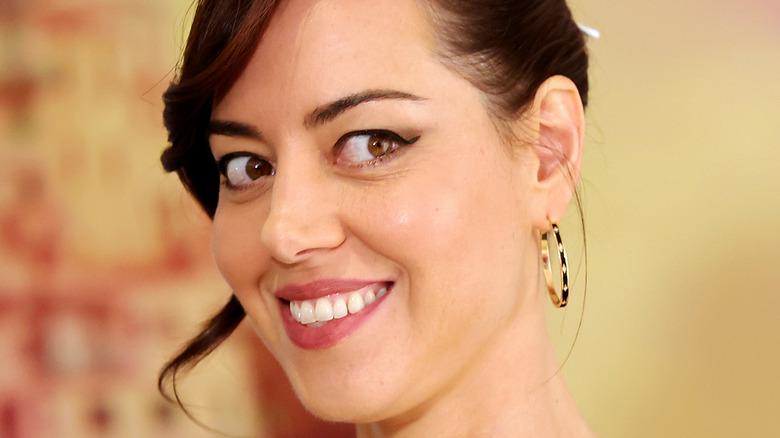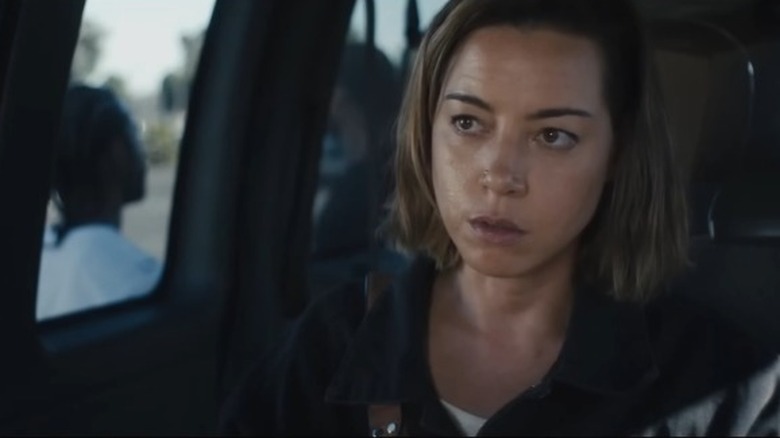Why Being Typecast After Parks And Recreation Ended Was A Good Thing For Aubrey Plaza
Aubrey Plaza was brought in to play April Ludgate on NBC sitcom "Parks and Recreation" because, well, she just seemed odd. According to The AV Club, co-creator Michael Schur apparently wrote the part for Plaza after his casting agent said, "I just met the weirdest girl I've ever met in my life. You have to meet her and put her on your show." Once they met, Schur felt "really uncomfortable" around her, and was then inspired to pair Plaza's dead-eyed, sarcastic intern April with Leslie Knope's (Amy Poehler) extremely sunny energy on the show.
However, Schur also explained how the writers expanded the character a bit when Plaza turned out to have a great deal of range (The AV Club). As anyone who's seen "Legion" or "Ingrid Goes West" knows, Plaza can reach shocking depths of intensity and menace when she's given a rewarding role.
For years, the actress expressed anxiety over being typecast as characters similar to April (via The Cut), however, the fear of being stereotyped on screen no longer appears to bother Plaza.
Being typecast has only fueled Plaza's ambition
Aubrey Plaza tried very deliberately to avoid doing "that Aubrey Plaza thing" on screen after a certain point, and after "Parks and Recreation," she noticed that strangers expected her to simply be April Ludgate in person: "When I meet people for the first time, they can't believe I'm not going to be mean" (via The Cut).
However, in an Indiewire interview, Plaza acknowledges that in retrospect, being heavily associated with April was a good thing for her as an actress. "It gave me motivation to prove myself. If I convince people so well that I was that one thing and then I do something that's totally different, it will be that much more satisfying to surprise them."
This meant that she would insist on auditioning for the part in "Dirty Grandpa" meant for a stereotypical hot blonde, terrified audiences on "Legion," and is now a poor millennial breaking bad in her new film "Emily the Criminal." Her best advice for creatives is to control people's expectations of them: "You just have to do it yourself, create it yourself, because people will just keep putting you in a box" (via Indiewire).

